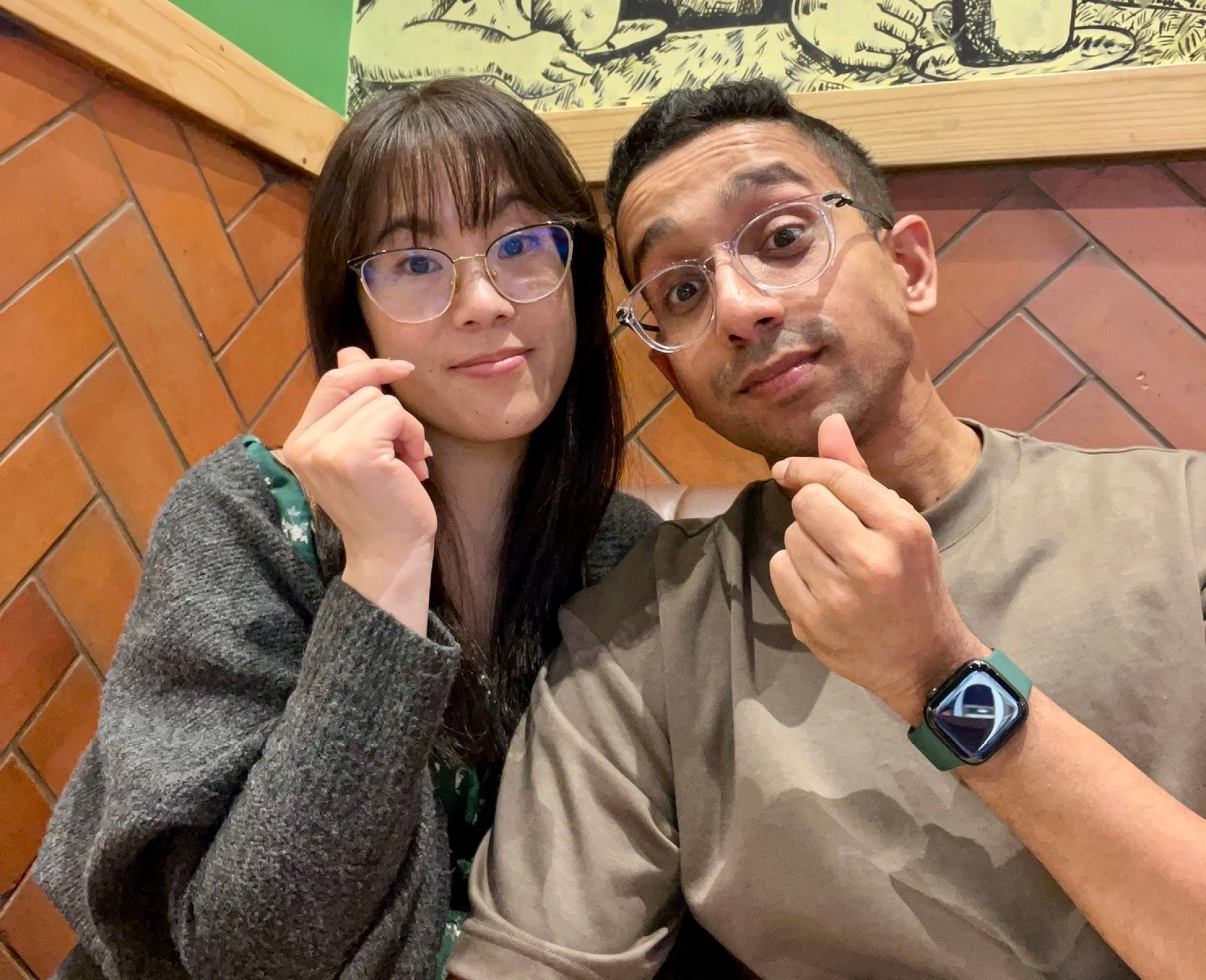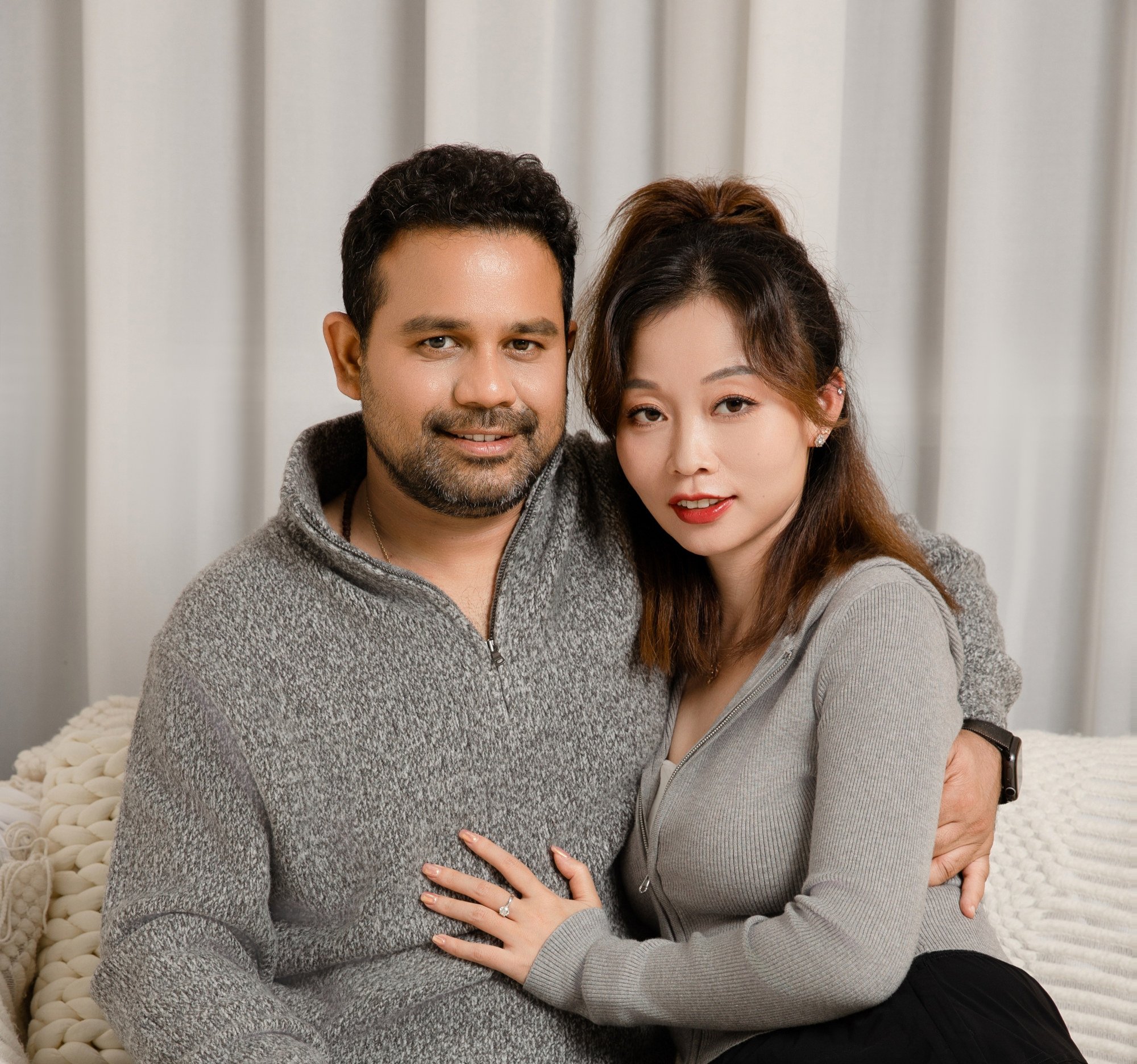Chung and Jaiswal – now both US citizens – are one of 14 Indian-Chinese couples who share how they got together, despite all the challenges, in a new book titled Rebels, Traitors and Peacemakers: True Stories of Love and Conflict in Indian-Chinese Relationships. These couples – hailing from China, Singapore, Malaysia, Australia, India, Nepal, Canada, the US and Britain – all defied their family and cultural norms to be with each other.
Thai women married to German men open up about life in Berlin
Thai women married to German men open up about life in Berlin
With the historically strained ties between India and China helping create a host of negative biases between the two countries, these couples are often labelled as “traitors” for falling in love with someone from the “enemy” country.
“The stories we heard and documented provided powerful examples of how Indian and Chinese people can reach out to one another, bridging cultural barriers and surmounting formidable challenges imposed by families,” the book’s co-author, 45-year-old Shivaji Das, who works in a research and consultancy firm in Singapore, told This Week In Asia.
Despite sometimes being called “traitors” to the entire race by their own families and “spies” by outsiders, Das says these couples see themselves as “peacemakers” who want to reconcile the differences between the two countries and create new identities for themselves.
“They are driven by rebelliousness and resoluteness as much as they are driven by openness and curiosity,” Das said.

In 2012, Das married wife and co-author Yolanda Yu, a 40-year-old career and leadership coach of Chinese descent. Das also faced hurdles in convincing Yu’s mother about his commitment to the relationship, as she was worried Das would leave her daughter if Yu ever had disputes with his parents.
But 11 years into their marriage, Yu’s mother thinks it was a “great” decision for the two of them to get married.
Yu said that her mother felt assured after observing Das’s “calm, caring, and self-disciplined personality” and his efforts to make her comfortable in a different cultural setting.
For Das and Yu, knowing each other was another way of discovering the commonalities of their respective cultures – male privilege, mandatory reverence for elders, an idea of racial purity, and prioritising family over anything else.
Das and Yu, who also co-authored a book titled The Visible Invisibles: Stories of Migrant Workers in Asia, were surprised to find that very little had been written on the challenges, compromises and determination involved in the making of Indian-Chinese couples, so they wanted their book to focus on the hard work that goes into making these mixed marriages happen.
Lonely hearts: the Singapore matchmaker helping Asian men find Vietnamese brides
Lonely hearts: the Singapore matchmaker helping Asian men find Vietnamese brides
While interviewing other Indian-Chinese couples for the book, Yu discovered that cultural differences played a bigger role in relationship dynamics of Indian-Chinese couples than they had ever imagined.
This was the case for 31-year-olds Arnav Ghosh and Rebecca Yip.
Ghosh, a product manager of Indian origin, recalled upsetting his mother-in-law because he didn’t do any of the household chores when all of them stayed together in a three-bedroom house in Hong Kong a year before the couple got married.
“In my Indian family, my mother cooked food, cleaned my room and did the laundry. I never learnt to do household chores, which upset Rebecca’s mother, who expected me to do these jobs at home,” said Ghosh, who works at an e-commerce tech start-up headquartered in Hong Kong. He has now learnt to do all household chores, including dishwashing.
“Plus, her parents had certain perceptions that Indian men don’t behave well with women, and India is backward and unsafe for women – all that added to the stress of an already strenuous relationship that I shared with them.”
It wasn’t easy for Yip, a pharmaceutical research scientist and British-born Chinese from Hong Kong, to do the balancing act of keeping everyone happy.
“Since I played the mediator between the two sides, I had to ‘please’ both, and it was extremely stressful for me,” Yip said.
Despite such hurdles, the couple stuck with each other and got married in 2017.
“We stood the test of time, our relationship has only [become] stronger over these years,” Yip said.

Even if a couple’s parents are accepting, it doesn’t necessarily mean familial rejection can’t still be an issue.
Demi Zhou Hua, 39, and Kumar G Gupta, 47, who live in China’s Guangzhou province, say they did not encounter any resistance from their immediate families, but one of Kumar’s cousins is still not speaking to him for marrying a Chinese woman.
Some face more wide-ranging social exclusion and discrimination.
According to an August 2023 report by data and business intelligence platform Statista, 17.8 per cent of marriages in Singapore are interethnic. However, some Singapore-based Indian-Chinese couples, such as Amit and Audrey, say they have encountered discrimination.
The couple, who did not want to give their real names, say in the book they have not been invited to any Diwali parties at their apartment complex in the cosmopolitan city state and married Indian women didn’t want to welcome Audrey into their circles since she is Chinese.
It was vital to write a book on mixed marriages at a crucial time when societies are so polarised
Das and Yu regularly face racialised comments in Singapore as well. A Chinese taxi driver once told Das, “Oh, you are married to a Chinese. You are very lucky”, while a restaurant owner, half in jest, once said to Yu, “He is good. He is the fair skin type”.
Das says the fresh tensions between India and China over the Ladakh region, which started in 2020, have fuelled further racism between the two communities as they call each other “backward”, “untrustworthy” and “dangerous”.
“It was vital to write a book on mixed marriages at a crucial time when societies are so polarised,” Das added.
Yip, who runs a YouTube channel “Curry and Dumpling” on which she shares stories of her married life, along with Ghosh, said a viewer once called her a “spy” for her Chinese origin. While she used to take such comments “personally”, Yip says she doesn’t read them at all now. Through their channel, she and Ghosh help other Indian-Chinese couples deal with the struggles of mixed-race marriages.
Such struggles include language barriers. Zhou and Gupta, the couple living in Guangzhou, say one of their biggest challenges is communicating in English since it is neither of their first languages. “This has often led to miscommunication,” Gupta told This Week In Asia.
“Also, since most written communication in banking, medical institutions and online purchases is done in Chinese, I feel frustrated about excessive dependence on Demi for everyday living,” he said.
Gupta is learning Chinese now and Demi picked up some basic Hindi, Gupta’s native language, a few years ago.
Malaysia’s religious tilt drives mixed-faith couples to ‘more accepting’ places
Malaysia’s religious tilt drives mixed-faith couples to ‘more accepting’ places
Some couples also worry that their children may struggle with confused identities.
Amit relates in the book that he wants their two children to stay connected to their Indian roots, but he fears that they may be confused over whether to call themselves Indian or Chinese, or Singaporean.
While Ghosh and Yip hope their son will grow up in a more “accepting” world, Das and Yu feel that their daughter has the potentially huge advantage of being able to converse, understand and navigate the two largest culture groups in the world – Indian and Chinese.
“Perhaps, she can be a citizen of the world, who can overcome all boundaries with ease,” Das said.

